Forget the safari idea.
The state department has deemed the Central African Republic Level 4 Do Not Travel for its unsafe conditions on many fronts.
The Central African Republic offers one of the prime destinations for safari travel, but its unstable political climate often stands in the way of visitors’ safety.
Warnings & Dangers in Central African Republic

OVERALL RISK: HIGH
A trip to the Central African Republic currently provides numerous dangerous situations. These include natural disasters, tribal war, political unrest, tap water risk, animal and insect bite risk, food risk, disease risk. The US State Department elevated its threat level to Level 4 Do Not Travel, its highest rating. You should put off a trip to the Central African Republic until its conditions improve. According to the State Department, the threat of COVID-19 only increased the danger of traveling to the area. The US Embassy in Bangui has a “limited capacity to provide support” to US citizens, plus the area currently experiences elevated levels of civil unrest, crime, and kidnapping. Americans make ideal targets for the kidnappers and perpetrators of other crimes. Throughout the country, including its capital of Bangui, increased numbers of political demonstrations and armed conflicts have occurred.

TRANSPORT & TAXIS RISK: HIGH
Most of the roads in the area consist of dirt only and wash out during the rainy season. Traditional taxis and mass transit don’t exist. You rent a car and driver or use air travel to reach your destination. Air travel proves much safer since roadside bandits often attack cars on the road. Armed gangs rob travelers even in and just outside of Bangui. Limited buses and minibusses run within major cities. The few independent taxis use no meter or set fares and you must negotiate your travel for each trip.

PICKPOCKETS RISK: HIGH
Crime has risen to an all-time high in the country. Theft and robbery have become a mode of self-support and the road has become a dangerous place for travel on foot, by bike, or by vehicle. You should not carry valuables if you must travel to the Central African Republic and have your hotel lock your money or credit cards in the hotel safe. Never use your cell phone on the street.

NATURAL DISASTERS RISK: HIGH
While you only need to concern yourself with floods during the rainy season, the animal population creates a second serious natural hazard risk. Both insects and mammals provide a very serious and pervasive threat. The likely suspects of fleas, mosquitoes, and ticks carry diseases in the Central African Republic that you can’t prevent with medicine or vaccination. To avoid these bites, you should use preventative measures including clothing, insect repellant, screened tents, or rooms for sleeping with an added bed net or air-conditioned quarters. Always use an insect repellent containing 20 percent or greater DEET. If, despite your best efforts, you do get bitten, avoid scratching the bites. Treat them with either calamine lotion or hydrocortisone cream to alleviate the itch. Always check your body completely for ticks after any time outdoors – even in the city. Properly remove the ticks. Although they do not carry any diseases, bed bugs create any annoyance, and you should check your bedding for them before sleeping on it.

MUGGING RISK: HIGH
Similar to the pickpocket risk, you could easily get mugged in the Central African Republic. Your best method of remaining safe if you must travel to this country remains to leave all of your valuables in the hotel safe. Dress like a local. Memorize the directions to your destination so you needn’t look like a tourist.

TERRORISM RISK: HIGH
The chance of terrorist action such as being kidnapped and held for ransom is rather high at this time. You should plan ahead if you must visit this area, leaving a DNA sample with your physician and determining proof of life test that you share with your family. The risk is that high in the Central African Republic.

SCAMS RISK: LOW
Unlike other countries in Africa, the Central African Republic isn’t known for its scams. The worst you’ll find in this threat category is a tax driver who overcharges for his fares. This is probably the only issue the country avoids at this time.

WOMEN TRAVELERS RISK: HIGH
Women remain under greater threat than men. A woman will more likely be kidnapped since she can typically fetch a higher kidnap price and she can be raped. This isn’t just true of American or European visitors. Kidnap of young women, especially children, and teens is common within many African countries.

TAP WATER RISK: HIGH
Like visiting Mexico, do not drink the water. This applies to the tap water, the well water, and local spring water. Drink bottled water only since the natural water doesn’t get treated and can cause virulent illness.
Safest Places to Visit in Central African Republic
Few safe areas exist currently in the Central African Republic, sometimes shortened to CAR and pronounced like the vehicle you drive.
The country has become best known for its natural beauty.
It and its neighbor, the Democratic Republic of Congo (DR Congo), consist mostly of jungle.
Most people who do visit there go to see forest elephants, western lowland gorillas, and butterflies.
The country remains one of the poorest locations in the world and in the 21st century, few tourist attractions exist there.
Before the country broke from France in 1960, it fared better.
Today, a few spas dot the border of its capital, Bangui.
When conditions improve, you might visit the Dzanga Sangha National Park in the country’s southwest.
Places to Avoid in Central African Republic
Avoid all areas of the country, especially its north and northwest regions where political unrest and faction fighting rages the worst.
Those who must visit the country for business or government work should stick to the capital city.
Known for its mineral resources of diamonds, gold, iron, uranium, copper, and manganese, you might be tempted to try to tour a mining operation, but you should not.
Most individuals will find a safe religious experience since about half of the country is Christian, nearly an even split between Catholics and Protestants.
Just the amount of Protestants are the 15 percent belonging to the Muslim religion of Islam, and the remainder – about 35 percent of the population – practice native religions.
You should not try to explore other religions there though because religious differences form one of the basic causes of the instability that created the wars that caused the poverty.
Safety Tips for Traveling to Central African Republic
- Pack long pants, long-sleeved shirts, boots, socks, and hats treated with permethrin, an insect repellent used only on fabric. (You can’t use it on your skin.)
- Always wear insect repellent with DEET in it. Also, look for an insect repellent that also includes Picaridin, which also goes by the names icaridin, BR 3023, and Bayrepel, oil of lemon eucalyptus (OLE), para-menthane-diol (PMD), 2-undecanone, and IR3535.
- Rent an air-conditioned room and erect a bed net over your bed if it doesn’t already have one. When in the jungle, sleep in a screened tent or temporary room with a bed net erected above the bunk or cot.
- Avoid packing valuables and leave any credit cards or large amounts of money in the hotel safe.
- Always know directions to reach your destination before leaving for it. This makes you seem more like a native than a tourist or business traveler.
- Copy the manner and dress of the local population but first, confer with your hotel’s concierge. You don’t want to offend anyone by wearing something you should not, but you do need to blend in with the populace, so you reduce your likelihood of mugging, kidnapping, and pickpocketing.
- Stick to the capital city only if possible. If you must see nature while visiting the country, go to its Dzanga Sangha National Park.
- Avoid conversations on religious or political topics.
- Undergo both COVID-19 vaccine shots and the booster shot before visiting the country. The disease spreads quickly in CAR and the country reports many cases of COVID-19.
- Draft your will and living will before you visit. You should designate a power of attorney, insurance beneficiaries, and a single point of contact for authorities and the Embassy as well as US Congressional representatives and senators in case you are kidnapped. This includes conveying your funeral plans before making the trip. The area is that dangerous.
So... How Safe Is Central African Republic Really?
The CAR is not safe.
Along with the enhanced threat of COVD-19, polio, and yellow fever also run rampant there.
All visitors must already have been vaccinated against all three diseases.
The Centers for Disease Control (CDC) has raised the threat level for polio to Level 2.
Even with those vaccinations, you should take added precautions.
There is currently no embassy within CAR.
The US Embassy in Bangui no longer offers consular service.
You must go through the Cameroon US Embassy in Yaounde, Cameroon.
Central African Republic is not a safe destination.
Factions fighting since 1960 have resurged their warfare and travel within the country is unsafe.
Avoid traveling there at all costs.
How Does Central African Republic Compare?
| Country | Safety Index |
|---|---|
| Central African Republic | 32 |
| Djibouti | 38 |
| Croatia | 83 |
| Mexico | 65 |
| France | 64 |
| Puerto Rico | 34 |
| Somalia | 16 |
| United Kingdom | 77 |
| Peru | 50 |
Useful Information

Visas
CAR does not require a tourist visa but the airline that flies you there may. Your passport will remain valid for six months there and you’re required to have one page for the entry stamp.

Currency
The Congolese franc serves as the currency in the location. You can use an airport exchange or an ATM to obtain the local currency. You can also change the currency at a bank before flying into the country.

Weather
CAR is always hot. In January, it reaches 80F. In July, it reaches about 86 F. The average low temperature for the county is 65 to 66F.

Airports
The international flights land at Bangui M’Poko International Airport. Within the country, you might fly into Bangassou Airport, Bambari Airport, Aeroport de Bouar, or one of the other many small airports. In total, about 21 small airstrips dot the country.

Travel Insurance
You should obtain full travel insurance if you must visit CAR. This ensures you have the means to cover emergency exit from the country and a means for your family to fund your rescue. Travel insurance provides travel assistance when visiting CAR.
Central African Republic Weather Averages (Temperatures)
Average High/Low Temperature
| Temperature / Month | Jan | Feb | Mar | Apr | May | Jun | Jul | Aug | Sep | Oct | Nov | Dec |
|---|---|---|---|---|---|---|---|---|---|---|---|---|
| High °C |
32 | 34 | 34 | 32 | 32 | 30 | 29 | 29 | 30 | 30 | 31 | 31 |
| Low °C |
18 | 21 | 22 | 22 | 21 | 21 | 21 | 21 | 21 | 20 | 20 | 18 |
| High °F |
90 | 93 | 93 | 90 | 90 | 86 | 84 | 84 | 86 | 86 | 88 | 88 |
| Low °F |
64 | 70 | 72 | 72 | 70 | 70 | 70 | 70 | 70 | 68 | 68 | 64 |
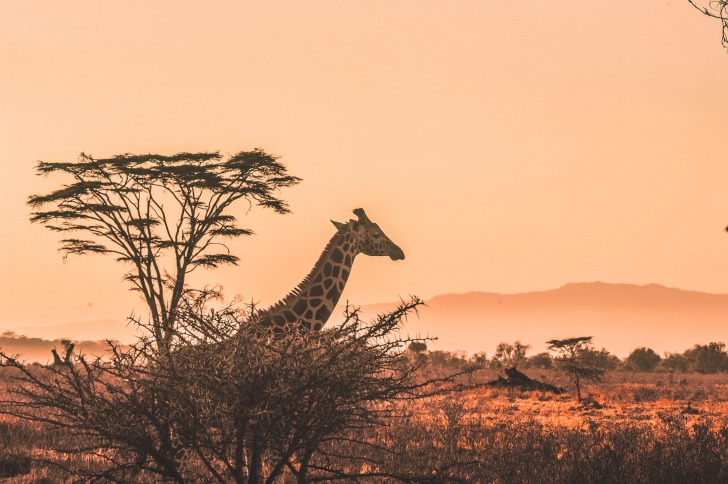
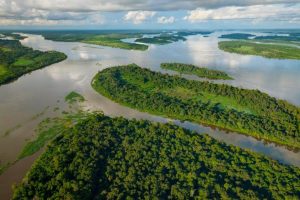
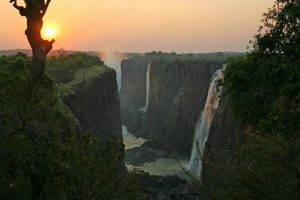
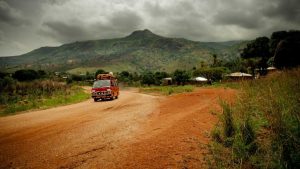

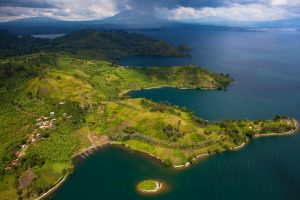
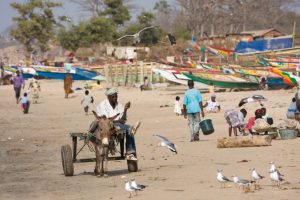





Central African Republic is very safe. Lots of sappeurs are there!!! Also btw search up festival de la sape. Yours sincerely, Rajesh Ramesh
Yea
Yes, extremely safe to visit now in 2024!
Bangui
Bangui is so cool to visit and so safe and zero corruption, I will visit again
Visit us
as a local, Central African republic is one of the least corrupt nations in the world, extremely friendly police and people, little to no crime
Nice
Very beautiful and safe country, love from Belgium!
Very good
I didn’t have a problem here at all, very safe and cheap, probably safer than many cities in the USA
Love from Singapore
probably safer than many European countries too. It’s extremely safe across the country, the police is very efficient and there is CCTV everywhere
Great
I came here from India for a 2 week trip, loved it in Bangui, extremely safe monitored and cheap food
Jai Bharat Jai Central African republic
Racism, PERIOD
Racist article
This country is so safe , as a white female , it’s prolly safer than many European and American cities.
Hmmmm
Central African republic is very well governed and safe to visit smh. I went there for 3 weeks. not a single robbery case or murder case.
Not disappointed
as a Korean this country is probably safer than South Korea itself, people were kind and friendly and spoke English well, I will come back here again
Good English spoken
Very good English spoken here, most locals can speak English extremely well and very safe. love from lagos
nice CAR!
CAR is prolly safer than canada lol as a canadian tbh, very well run nation loved it 🙂
review
id say it was fun visiting. Bangui was cheap and safe, i even saw phones on the street to reserve tables with
Nepali
Love central African republic from nepal